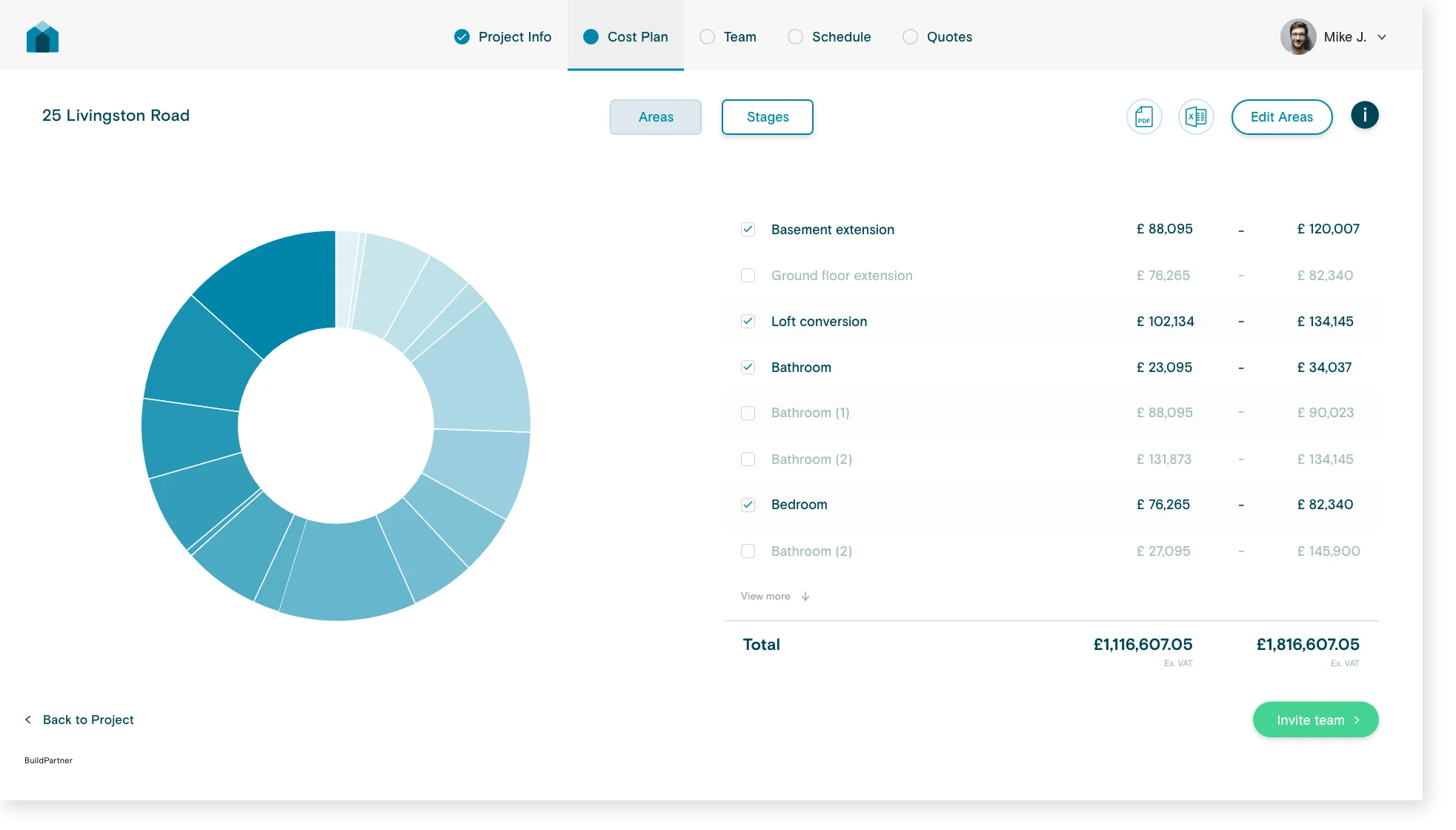What is a Cost Plan in Construction? And Why Are They Needed?
A cost plan is an essential tool for any construction project, providing a detailed outline of the estimated costs associated with a project's various elements. This article will discuss the importance of cost plans, how different specifications and scopes impact them, and the stages in which they are needed. We will also explore how BuildPartner automatically creates a Cost Plan for users using its software, based on UK material costs, and how this benefits architects, builders, and developers.
What is a Cost Plan?
A cost plan is a document that breaks down the various elements of a construction project and provides detailed cost estimates for each component. This includes costs related to materials, labor, equipment, and other expenses associated with the project. A cost plan is typically structured in a way that allows for easy tracking and updating of costs throughout the project's duration. It serves as a valuable reference for all parties involved in the project, including clients, architects, engineers, contractors, and subcontractors.

When are Cost Plans Needed During the Construction Process?
Cost plans are typically developed during the design and pre-construction phases, with updates occurring at various stages:
- Concept Design Stage: An initial cost plan is created based on preliminary project specifications and scope.
- Detailed Design Stage: As the design is refined and more information becomes available, the cost plan is updated to reflect the changes.
- Tender Stage: Once the project has been tendered and contracts are awarded, the cost plan is updated to include contractor pricing.
- Construction Stage: The cost plan is continually updated throughout construction to track actual costs against the estimates, allowing for adjustments as needed.
The Importance of a Cost Plan
Cost plans are crucial for several reasons:
- Budget Management: They help clients and project teams manage the budget throughout the project, ensuring that the costs stay within the allocated funds.
- Risk Mitigation: They identify potential risks and cost overruns early in the project, allowing for proactive measures to be taken to avoid issues.
- Decision Making: Cost plans provide a clear picture of the project's financial feasibility, allowing clients and stakeholders to make informed decisions about scope, design, and specifications.
Different Specifications and Scopes Impact on Cost Plans
Various factors, such as project specifications and scopes, can impact a cost plan. High-end materials, such as marble or granite, will significantly increase the overall cost, while more affordable materials like concrete or vinyl can lower the cost. Similarly, project scope variations, such as adding or removing elements, will affect the cost plan. It is crucial to consider these factors when developing a cost plan to ensure accurate and realistic estimates.
How BuildPartner Automates Cost Plans
BuildPartner's software automatically generates a cost plan for users, based on the latest UK material costs. This tool provides architects, builders, and developers with an accurate and up-to-date cost plan, saving them time and effort.
By using BuildPartner's software, users can benefit from:
- Instant access to current UK material costs
- Automatic cost plan generation based on project specifications and scope
- Easy adjustments to cost plans as project details change
- Improved budget management and decision-making capabilities
In conclusion, cost plans are a vital component of successful construction projects, helping teams manage budgets, mitigate risks, and make informed decisions. BuildPartner's software automates this process, providing users with accurate cost plans based on the latest UK material costs. To learn more about how BuildPartner can benefit your next construction project, visit https://buildpartner.com/.

